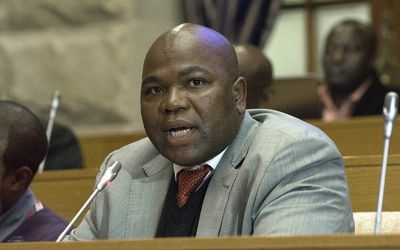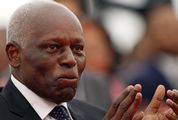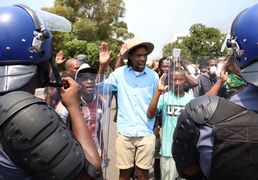PRESIDENT Jacob Zuma has penned a different narrative to the circumstances surrounding former National Prosecuting Authority head Mxolisi Nxasana’s departure, saying in court papers the erstwhile prosecutor asked to vacate his office.
However, Mr Nxasana told Business Day on Tuesday that he was aware of the president’s claim and would "deal with the matter by next week" after consulting his lawyers.
Mr Zuma’s version of events is contrary to the widely held view that Mr Nxasana agreed to quit after sustained pressure from the government.
His controversial departure, barely two years into his 10-year tenure as national director of public prosecutions, came about when he got a R17.3m golden handshake after an inquiry into his fitness for office was cancelled abruptly at the 11th hour.
The Council for the Advancement of the South African Constitution (Casac) has challenged the deal in court. It wants Mr Nxasana to pay back the money and for the High Court in Pretoria to declare him the "incumbent". It also wants Shaun Abrahams’s appointment set aside.
Casac’s case is similar to one launched in August by Freedom Under Law and Corruption Watch, and it is likely the two will be consolidated.
Mr Zuma filed written reasons for his decision in response to Casac’s court case. He referred to section 12(8) of the NPA Act, which says the president can allow the prosecutions head to leave on request "for any other reason which the president deems sufficient".
Mr Zuma said that in May 2014 and July last year, he and Mr Nxasana had "various discussions regarding the discord" between Mr Nxasana and senior management in the NPA.
"The discord was so pronounced, the senior management was divided and the NPA was destabilised. The looming inquiry into the fitness to hold office of Mr Nxasana also contributed to this discord."
The president said that Mr Nxasana "made his request (to leave) on those grounds".
In a supplementary affidavit filed last week, Casac executive secretary Lawson Naidoo said the Presidency had "tellingly" provided no letter from Mr Nxasana recording a request to vacate office "despite the surfeit of letters from Mr Nxasana to the president".
In review proceedings such as this, the decision maker is required to provide a record of the decision, which consists of all the written documents upon which the decision was based.
"Nor is there a minute of a meeting between the two men where such a request was made orally," said Mr Naidoo. Mr Nxasana’s conduct, based on Presidency documents, went against Mr Zuma’s account, he said.

Mxolisi Nxasana. Picture: TREVOR SAMSON
PRESIDENT Jacob Zuma has penned a different narrative to the circumstances surrounding former National Prosecuting Authority head Mxolisi Nxasana’s departure, saying in court papers the erstwhile prosecutor asked to vacate his office.
However, Mr Nxasana told Business Day on Tuesday that he was aware of the president’s claim and would "deal with the matter by next week" after consulting his lawyers.
Mr Zuma’s version of events is contrary to the widely held view that Mr Nxasana agreed to quit after sustained pressure from the government.
His controversial departure, barely two years into his 10-year tenure as national director of public prosecutions, came about when he got a R17.3m golden handshake after an inquiry into his fitness for office was cancelled abruptly at the 11th hour.
The Council for the Advancement of the South African Constitution (Casac) has challenged the deal in court. It wants Mr Nxasana to pay back the money and for the High Court in Pretoria to declare him the "incumbent". It also wants Shaun Abrahams’s appointment set aside.
Casac’s case is similar to one launched in August by Freedom Under Law and Corruption Watch, and it is likely the two will be consolidated.
Mr Zuma filed written reasons for his decision in response to Casac’s court case. He referred to section 12(8) of the NPA Act, which says the president can allow the prosecutions head to leave on request "for any other reason which the president deems sufficient".
Mr Zuma said that in May 2014 and July last year, he and Mr Nxasana had "various discussions regarding the discord" between Mr Nxasana and senior management in the NPA.
"The discord was so pronounced, the senior management was divided and the NPA was destabilised. The looming inquiry into the fitness to hold office of Mr Nxasana also contributed to this discord."
The president said that Mr Nxasana "made his request (to leave) on those grounds".
In a supplementary affidavit filed last week, Casac executive secretary Lawson Naidoo said the Presidency had "tellingly" provided no letter from Mr Nxasana recording a request to vacate office "despite the surfeit of letters from Mr Nxasana to the president".
In review proceedings such as this, the decision maker is required to provide a record of the decision, which consists of all the written documents upon which the decision was based.
"Nor is there a minute of a meeting between the two men where such a request was made orally," said Mr Naidoo. Mr Nxasana’s conduct, based on Presidency documents, went against Mr Zuma’s account, he said.



























Change: 0.40%
Change: 0.47%
Change: -0.49%
Change: 0.53%
Change: 1.03%
Data supplied by Profile Data
Change: 1.71%
Change: 1.28%
Change: 0.40%
Change: 0.00%
Change: 1.64%
Data supplied by Profile Data
Change: -1.27%
Change: 0.00%
Change: 0.05%
Change: -0.08%
Change: 0.35%
Data supplied by Profile Data
Change: -0.02%
Change: 0.21%
Change: -0.06%
Change: 0.53%
Change: 0.70%
Data supplied by Profile Data